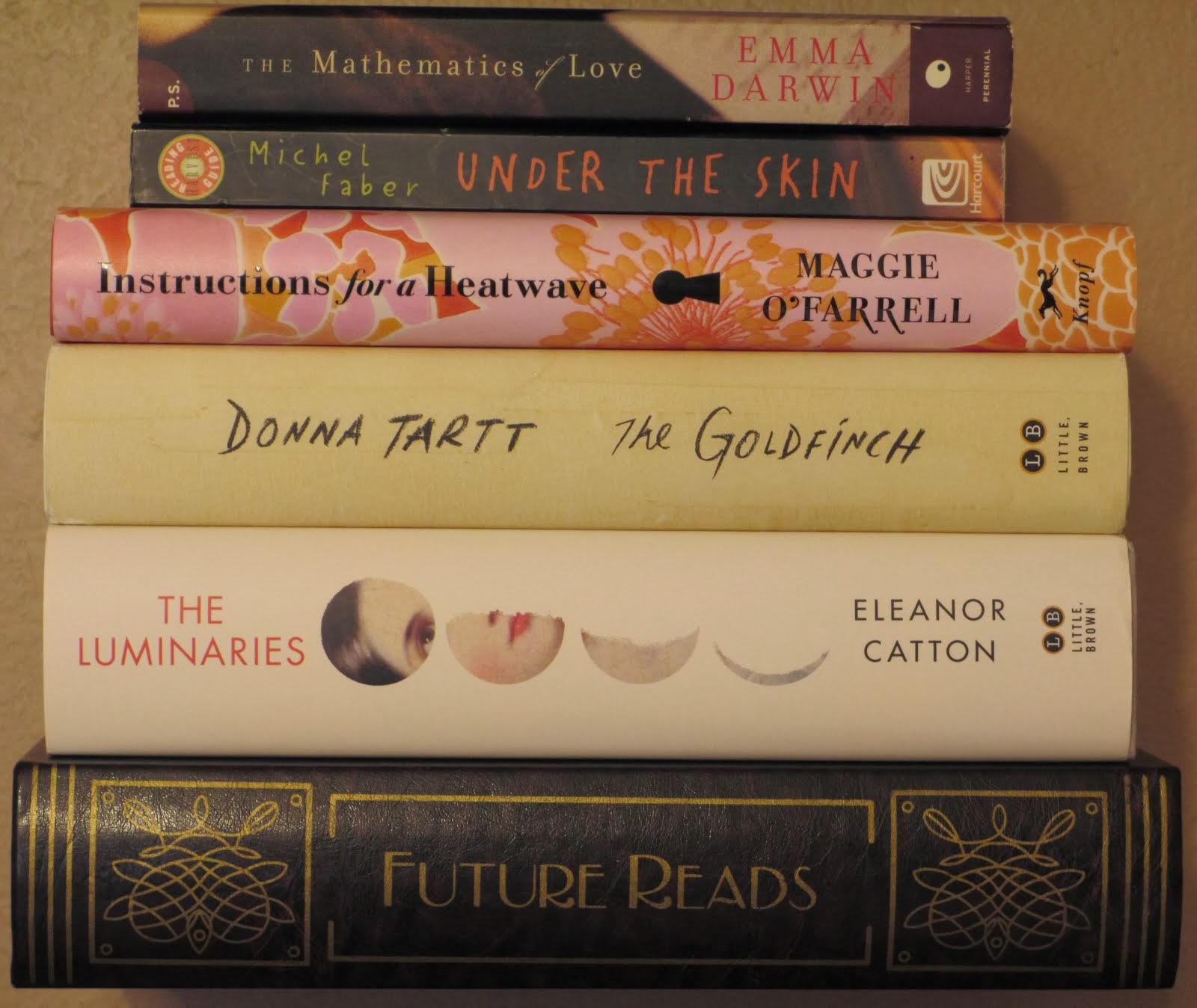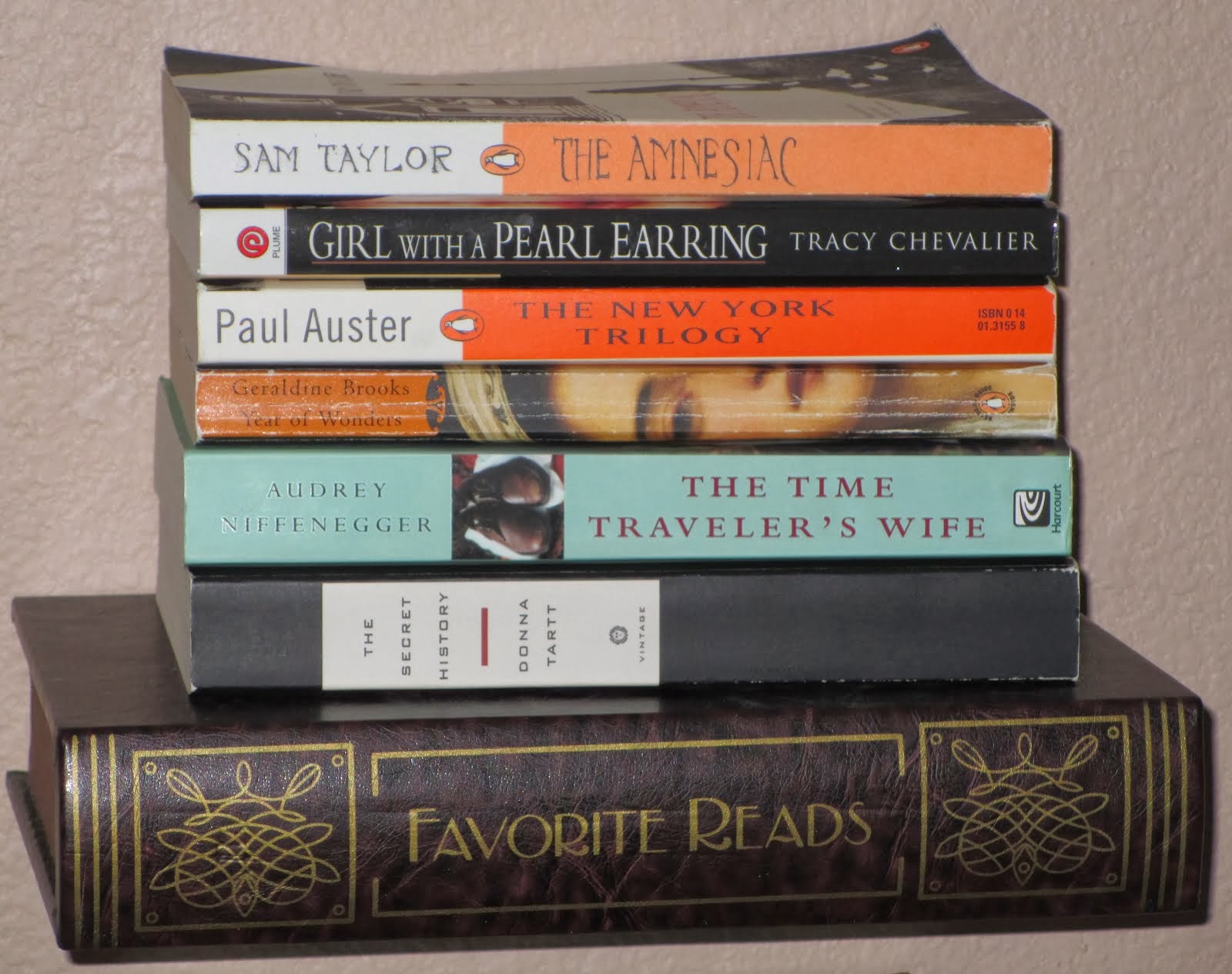I had a rare moment this afternoon to lie still and stare off into space for a bit and, surprisingly enough, I didn't fall asleep. Instead, I spent the moment contemplating the books I've read over the past two years--those I haven't blogged about, though I wish I had. (I can see a stack of 25 of them from where I sit, and I'm sure there are at least as many others stashed in various nooks and crannies throughout the house.) Usually this rekindles the Literary Amnesiac fire in me and I start mentally planning how I can catch up and get back into blogging regularly. But today's brief meditation had a unique effect. I began writing a new blog post in my mind, but instead of thinking of specific books that I've read, I considered the various attributes of books I've most enjoyed reading.
For me, there is a bottom line--a minimum requirement, if you will. Technically speaking, the writing must not have mistakes. I have recently been given reason to believe that I *don't* actually catch every grammatical and spelling error present in print, but I find it disruptive when glaring errors figuratively poke me in the eye.
Closely tied to this bottom line: the writing must flow, and must not suck. (For lack of a better term.) Not that I haven't managed to enjoy books with less-than-stellar writing, but I can't call to mind any true favorites that were poorly written. Wow, that sounds pompous . . . well, just keep in mind that I'm talking about my *opinion* of good or bad writing, and I do realize I don't have the last word on that. Also, my definition of "flow" is relatively relaxed and can encompass anything from Faulkner's unconventional stream-of-consciousness prose to Ishiguro's flawless writing. Above all, the writing must not distract me or keep me from losing myself in the story.
If the writing is decent and relatively mistake-free, my all-time favorite characteristic of a good book is the way I am propelled through it. I know I've written here before about my critical mass theory, but I don't mind mentioning it again: I LOVE reaching the point in a book where I am loath to lay it down, where if I have to stop reading I think of nothing but picking the book up again, and where I wish I could put life on hold, doing nothing but reading the book until I've reached the final page. This is kind of a vague trait and one that I'm sure is extremely subjective, but all of my favorite books reach critical mass at one point or another. (And the earlier, the better!)
It seems to me that everything else about a good book is minor compared to what I've already listed. Actually, that's probably the wrong perspective: everything else is the wasabi and pickled ginger to the sushi of good writing and critical mass. (A metaphor which only works if you like wasabi, pickled ginger and sushi. I do.) That doesn't mean the wasabi and pickled ginger aren't important, because they are. And here is what I see as the wasabi and pickled ginger of reading:
I enjoy interesting and unique characters (more so if they're believable), a twisting and engaging plot, and I would claim that the majority of books can only be improved by some suspense and a few secrets. Of course I don't mean that all books should be genre thrillers or murder mysteries; I just mean that I prefer books that raise questions for me to ponder as I read (whether smaller ones, merely about the plot of the book itself, or big ones about the Meaning of Life), especially if those questions aren't answered too quickly. I can even handle a few questions that are never answered . . . but not too many!
I like finding profound thoughts or wise quotes in my books, as long as those thoughts and quotes aren't just a bunch of crap. There may be nothing new under the sun, but it's always somehow fascinating to be shown an old idea in a new way.
And a throwback from my youth: I often found myself IN the book I was reading (not literally, of course). I was the main character. The events of the book were happening to me. Unfortunately, this doesn't seem to happen to me as often anymore, but I loved it when I was young.
This list is nowhere near exhaustive, and I would certainly expect other readers to prize aspects of literature that didn't even cross my mind. What qualities do you find are common denominators in your favorite books?
The Bride’s Week #16 – w/e 21/4
14 hours ago

















